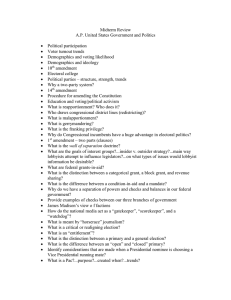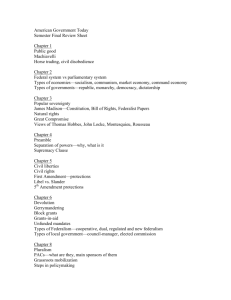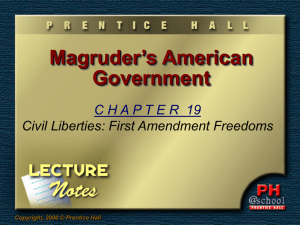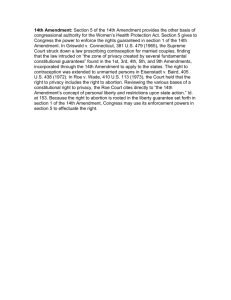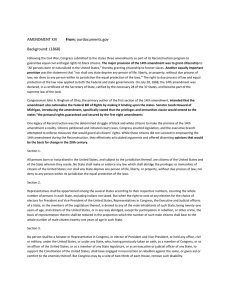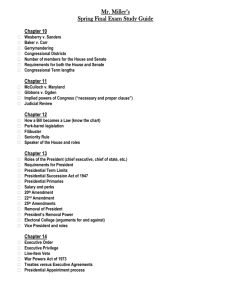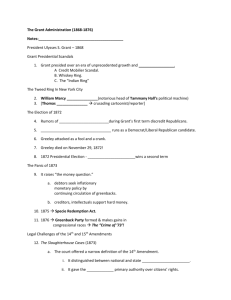Week 9 Discussion Questions
advertisement
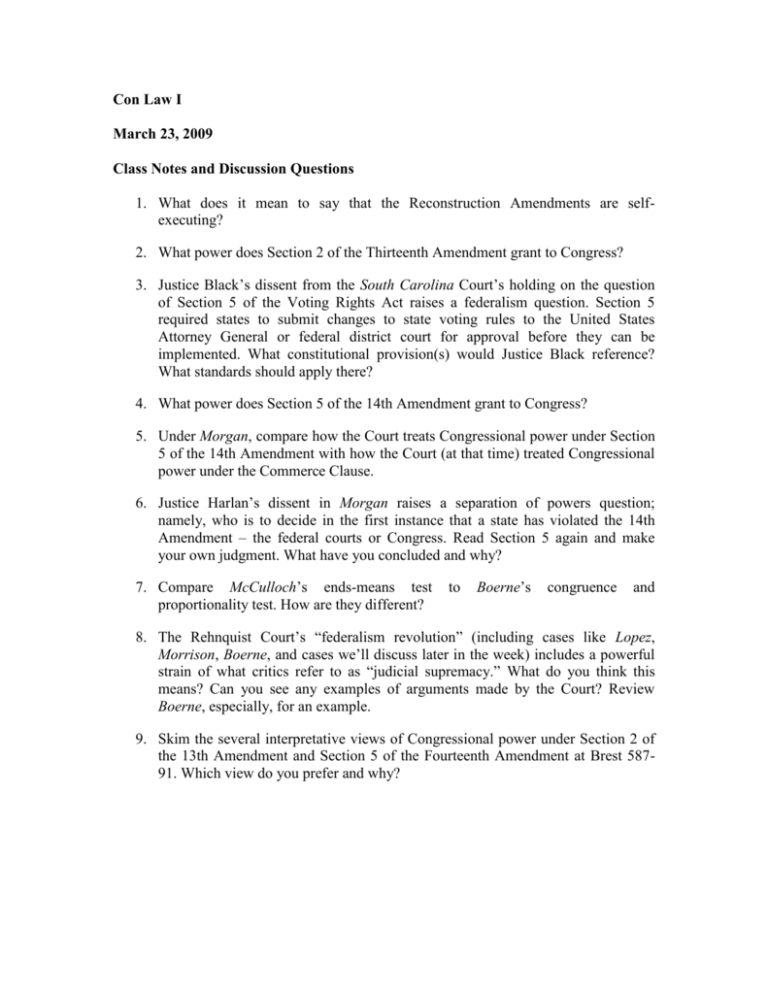
Con Law I March 23, 2009 Class Notes and Discussion Questions 1. What does it mean to say that the Reconstruction Amendments are selfexecuting? 2. What power does Section 2 of the Thirteenth Amendment grant to Congress? 3. Justice Black’s dissent from the South Carolina Court’s holding on the question of Section 5 of the Voting Rights Act raises a federalism question. Section 5 required states to submit changes to state voting rules to the United States Attorney General or federal district court for approval before they can be implemented. What constitutional provision(s) would Justice Black reference? What standards should apply there? 4. What power does Section 5 of the 14th Amendment grant to Congress? 5. Under Morgan, compare how the Court treats Congressional power under Section 5 of the 14th Amendment with how the Court (at that time) treated Congressional power under the Commerce Clause. 6. Justice Harlan’s dissent in Morgan raises a separation of powers question; namely, who is to decide in the first instance that a state has violated the 14th Amendment – the federal courts or Congress. Read Section 5 again and make your own judgment. What have you concluded and why? 7. Compare McCulloch’s ends-means test proportionality test. How are they different? to Boerne’s congruence and 8. The Rehnquist Court’s “federalism revolution” (including cases like Lopez, Morrison, Boerne, and cases we’ll discuss later in the week) includes a powerful strain of what critics refer to as “judicial supremacy.” What do you think this means? Can you see any examples of arguments made by the Court? Review Boerne, especially, for an example. 9. Skim the several interpretative views of Congressional power under Section 2 of the 13th Amendment and Section 5 of the Fourteenth Amendment at Brest 58791. Which view do you prefer and why?

